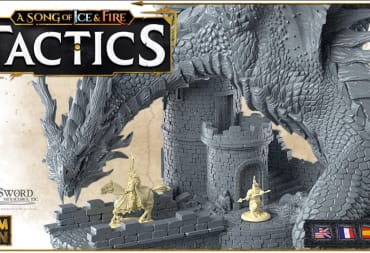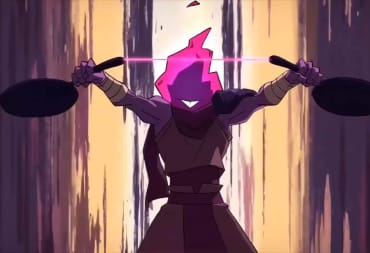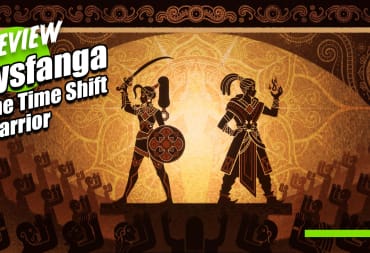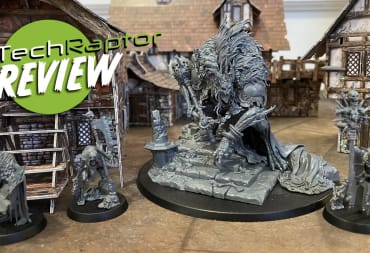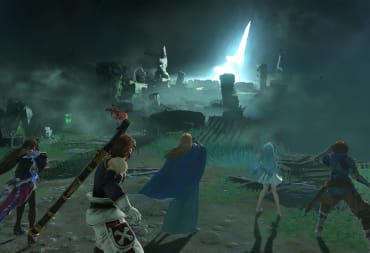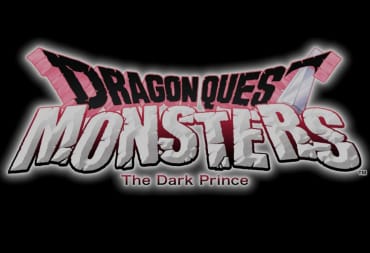Katana is a self published 2-player card game by Tracy Alan. Players take on the role of rival samurai and battle head-to-head in a duel to the death.
.jpg?itok=wmCbHlyH)
What is immediately apparent with Katana is the tightness of the product. It comes in a small box, large enough to accommodate 2 stacks of playing cards side by side and the digest rulebook. Katana was originally funded through Kickstarter and is now heading into retail with some updates after backer feedback. Katana comes with 108 cards and 2 small rulebooks, a gameplay guide and gameplay example. If you order direct, you also get a set of official tokens. At $15, including free US shipping, it's a pretty solid deal if it sounds like your kind of game.
I'm personally a huge fan of anything samurai, and that makes me the target audience, but also makes me difficult to please in that I've played a lot of samurai themed games and I can tell the difference between themed mechanics and just a skinned game. Speaking to Tracy before receiving my copy, I was pleased to find out that they really get the theme—that it's not always about flashy looking swordsmanship, but there's a depth to the culture and a huge amount happens before the first cut of the sword during a duel.
.jpg?itok=8siS3LFR)
Katana, at its heart, is an attack and defense game. Players alternatively take an action, playing cards to attack and defend. Any unblocked damage from an attack first goes through any armor and then removes health from a player. The first player to have their last health removed, loses. Cards come with an attack and defense value, and that means that if you use a card to defend, it's not available for an attack in your turn. If you've attacked, you will have less to defend with. If you attack and your opponent defends, you can play a follow up attack, which is repeated until they don't defend, or you stop attacking.
.jpg?itok=Tgn7gQSZ)
Players draw up to 5 cards at the start of their turn, so if you use all your cards to attack, your opponent will draw new cards before you can prepare a defense. This creates a very interesting dynamic of trying to whittle down your opponent to a point where you can push for one last all-out attack, while still trying to maintain your own defense.
.jpg?itok=OluFupXp)
Each card also has a Stance detailed on the card. A stance can be played at the end of your turn and they're played face-down, only coming into effect if you're attacked by your opponent. Stances give you access to effects like a boosted defense or shattering one of your opponent's armor cards. Stances can be risky, as it means that you won't have access to that card for defense, and they are discarded if your opponent doesn't attack.
.jpg?itok=a54aDBS0)
At the start of each game, players also select a Kami card. These cards show how much health you have, a passive ability, and an active ability that you can play a card to activate, rather than attacking in your turn. Kami cards also have a Kamikaze value, which is an attack value that can be activated at the cost of sacrificing your Kami card. Rather than attacking each turn, you can also Pollute your opponent's Kami, which removes access to abilities with each Pollute card played, eventually discarding the Kami. If you're ever without a Kami, through your opponent removing it or kamikaze, you can draw a new one by playing a Purify card.
.jpg?itok=MsFNhHXH)
What we like about Katana is how technically challenging it is. There are only 4 different attack/defense cards, so once you've got a few games under your belt, you can focus on trying to predict what action your opponent will take in their turn, along with working out what cards they might have in their hand. This means that there's not a huge variation in games. The different Kami do provide different effects, but they don't affect gameplay too greatly. This makes Katana more like a fixed piece board game, rather than a deck-builder or a living card game like Arkham Horror. It isn't a criticism, but it's something that you should be aware of. While Katana is very easy to learn, and extremely quick to teach, there are some instances that come up that aren't covered by the rules. An FAQ has started being populated, and we found it useful during our test games.
.jpg?itok=iMWOlfNQ)
Katana's colors and card text are sharp and easy to read, and the contrast between the small selection of colors throughout the product look great on the tabletop. Along with how compact the product is, it all builds into how functionally effective it is as a product. It's impressively minimalist, which really stands out to me. I even spent some time trying to work out could possibly be removed for the product, and other than making the health/armor cards double sided so you flip them, rather than placing them on top, the contents are a slimline as they can be.
.jpg?itok=rOodwHwH)
Games of Katana are quick and snappy, and while there is usually some contemplating during turns, everything flows well and even if games start to slip away from you, they're over quick enough that you can play multiple games during an evening. Katana also makes a great as a filler game, which combines well with the extremely tight components. It also doesn't take up a huge amount of tabletop, which is very refreshing.
The Bottom Line
Katana is an extremely thematic samurai battle game. The focus is entirely on skill and reading your opponent's actions and cards and planning your own strategy around that, rather than blindly playing cards. The whole product is very tight in terms of the minimalist components, colors, and the table space it takes up. The different actions available each turn gives enough variety in how you can approach each battle, whilst still keeping the game tight and skill focused. Katana is quick to learn, very easy to teach, fast to play, offers a high amount of technical skill, and at $15 delivered, it's an incredible product.
Get This Game If:
- You want an incredibly thematic samurai duel game.
- You want a very tight and transportable 2-player game.
- You want a game with a focus on skill rather than luck.
Avoid This Game If:
- You want a game with more than 2 players.
- You want a game with a huge variety between cards.
This copy of Katana was provided by the publisher.
Review Summary
Have a tip, or want to point out something we missed? Leave a Comment or e-mail us at tips@techraptor.net
.jpg?itok=oL5Lrf3E)



